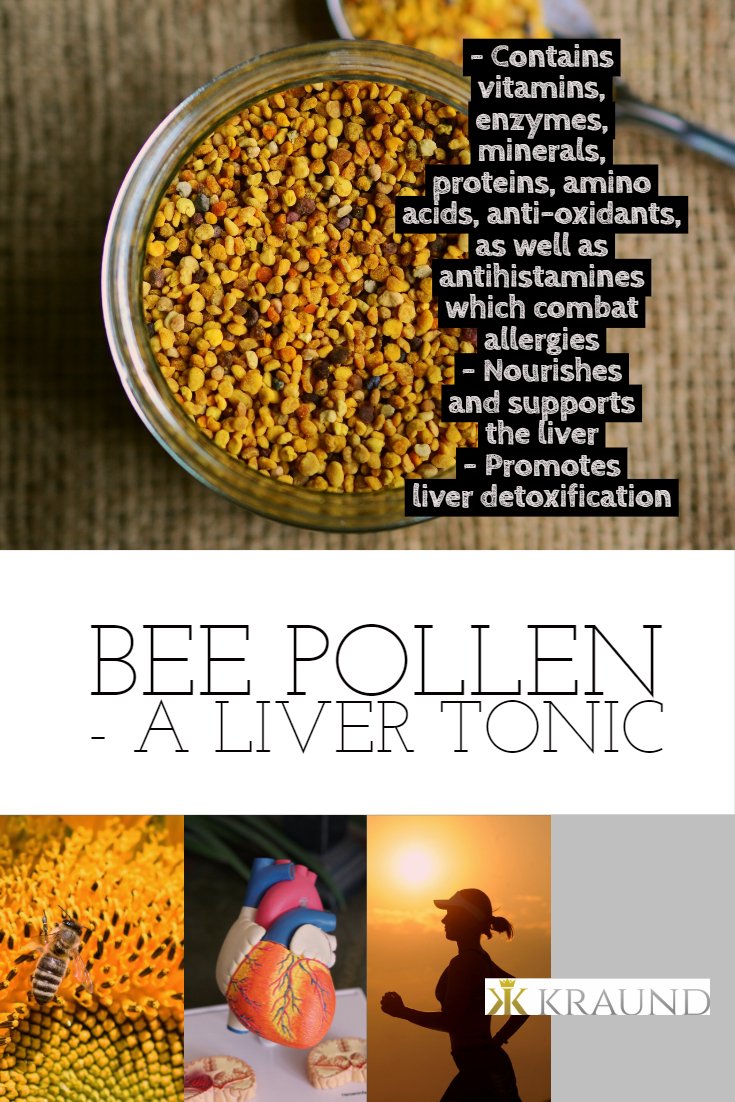
The pollen from bees revitalises our organs, particularly the liver. The liver is among the organs inside the body that performs a lot of functions such as producing bile and filtering the blood. Bile is a substance which helps digest certain fatty compounds. Additionally, the liver helps in attaching to and processing fat for carriers such as cholesterol and assists the body in transporting it to save energy, making major proteins, such as most of those associated with blood clotting, in addition to albumin which regulates fluid transportation, eliminating toxic chemicals, and metabolising. On top of this, it assists with storing a few minerals and vitamins and helps to recycle red blood cells and to break them down.
Bee pollen nourishes the liver and helps us look after this vital organ. Liver issues are caused by a wide range of conditions including infections, bacteria, chemicals or physical changes within our bodies. The most typical cause of liver problems is malnutrition, particularly when combined with alcoholism. However, bee pollen contains all the vital nutrients our body needs. When one ingests bee pollen, the body is well provided with various vitamins, enzymes, minerals, amino acids, proteins, and even antihistamines which combat allergies, as well as anti-oxidants.
There are so many liver ailments which include cirrhosis, a broad range of hepatitis, fatty liver, and a lot more. Liver performance can be enhanced with bee pollen. The reason is that bee pollen increases the number of red blood cells within the body, and the liver assists with breaking down and recycling these red blood cells. Bee pollen is rich in anti-oxidants which promote liver detoxification. The liver excretes fatty substances which are not required by the body. As bee pollen contains lecithin which dissolves and drains fat cells, bee pollen supports healthy liver functions. Bee pollen and the liver work together as a team.
Incorporating bee pollen in one's diet is easy. Bee pollen can be sprinkled over cereal or added to smoothies. It is a good idea to start with a small amount of half a teaspoon per day and to increase this to four teaspoons.
It is essential to know the source of the bee pollen, as frequently bee pollen is contaminated with pesticides.
The FDA hasn't assessed the statements. The information is provided for informational purposes only. It's not intended to substitute medical advice or diagnosis by your doctor or other medical professionals. These herbs and products aren't meant to diagnose, treat, prevent or cure any illness. Please always consult your healthcare professional.
Congratulations @kraund! You received a personal award!
You can view your badges on your Steem Board and compare to others on the Steem Ranking
Do not miss the last post from @steemitboard: